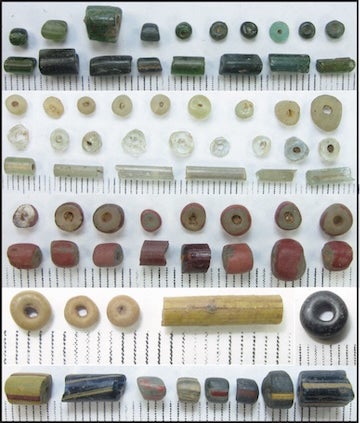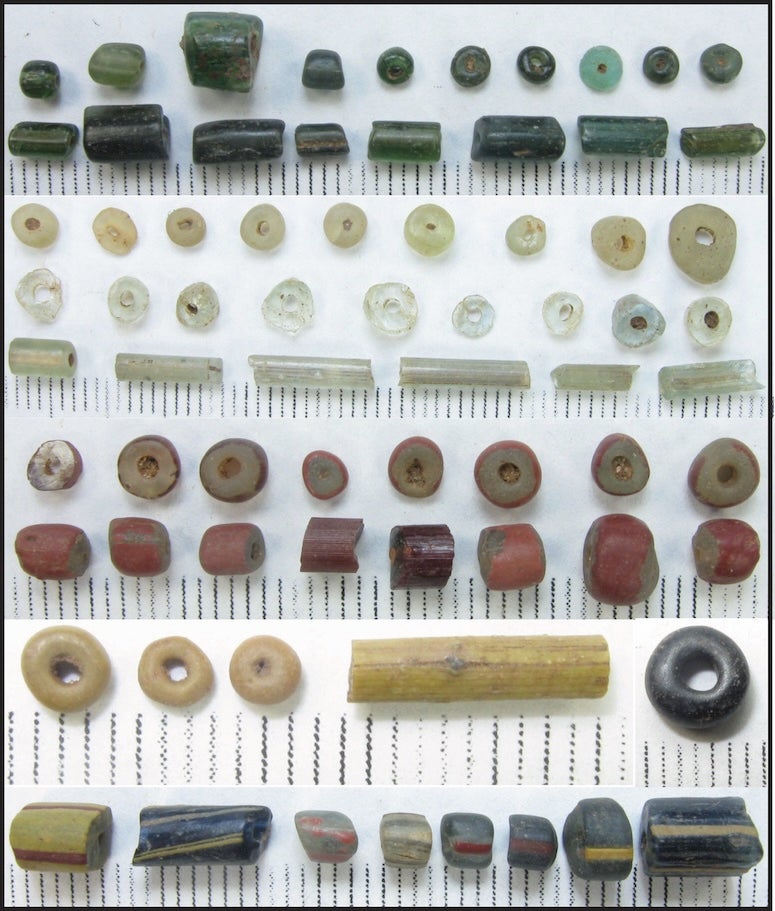
Rice University alumnus Abidemi Babatunde Babalola ’11 ’15 has been named a recipient of the 2025 Dan David Prize, one of the world’s largest history awards that honors early to midcareer scholars whose work pushes the boundaries of historical research and brings the past to life for broader audiences.
Babalola, who earned his master’s degree and doctorate in anthropology and African archaeology from Rice, is internationally recognized for his research on glass production in pre-15th-century West Africa. His research shows that highly sophisticated glassmaking developed independently in the region with a workshop centered in Ile-Ife, Nigeria. His work reframes early West African societies as innovators and central players in early global trade networks. He now serves as lead archaeologist on the Museum of West African Art archaeology project in Benin City, Nigeria, for the British Museum’s Department of Africa, Oceania and the Americas.

“The work has set sub-Saharan African societies on a new pedestal of the archaeology and history of technology, invention and innovation,” said Babalola, known to colleagues as Tunde. “As against stories of violence and starvation in Africa, here we are beginning to see a new history of complex engagement with the environment in creating a novel material world that transcends spheres of life from aesthetic choice to architecture, commerce, social status, power and spirituality. It pushes back the idea of restricted creativity in the human past and argues for a regional development of ideas, inventions and creativity.”
At Rice, Babalola stood out for his persistence and creativity. “Tunde was a tireless researcher as a graduate student,” said Jeffrey Fleisher, professor and chair of anthropology. “He was incredibly resourceful and tenacious in learning archaeological scientific techniques that allowed him to address new questions and challenge old assumptions.”
“Being at Rice was so exciting for me,” Babalola said. “Rice provided a platform of academic excellence with a community of intelligentsia that shaped my perspectives on anthropology and African archaeology in particular. The ambience, the people and the resources are amazing. Working with Susan McIntosh and Jeff Fleisher helped me to think about conducting research that goes beyond contributing to academic discourses but also paying critical attention to the human aspect of the research we do — serving and engaging with the local community.”
Fleisher says Babalola’s research has challenged long-held narratives about African societies.

“This has helped expose a complex technological history in West Africa that long predates the colonial period,” Fleisher said.
Beyond academia, Fleisher said Babalola’s work also excites audiences by rewriting assumptions about the African past and motivating young Africans to pursue archaeology.
“The Dan David Prize is such a well-deserved award for Tunde and his remarkable research,” Fleisher said. “It also serves as an inspiration for our current students.”
Babalola said there is still much to uncover.
“There are several aspects of the technology or technological approaches in early Ile-Ife and across West Africa that are yet unknown,” he said. “Having identified the uniqueness and importance of the indigenous glass technology in classical Ile-Ife, what was the relationship between glassmakers and other craftspeople? How much of ideas and materials crossed over among different crafts? How much does the local community know about this early technology and its significance in modern times? Answers to these questions mean there’s more work to be done. So the prize will help to focus more on other aspects of the technological history in Yorubaland and beyond. It will also allow for more public-facing programs and community engagements.”

